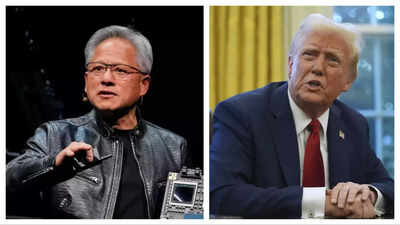Key Takeaways
- Trump confirms Nvidia’s Blackwell AI chips cannot be sold to China
- Restrictions aim to protect US technological leadership and national security
- South Korea emerges as alternative market for advanced AI technology
US President Donald Trump has explicitly banned the sale of Nvidia’s most advanced Blackwell AI chips to China, reinforcing America’s stance on protecting frontier artificial intelligence technology. In a taped interview with CBS’ 60 Minutes, Trump stated these “super powerful chips” are reserved exclusively for US use and cannot be exported to China or other foreign buyers.
Blackwell Chips: The Engine of AI Power
Nvidia’s Blackwell processors represent the cutting edge in AI computing, designed specifically for powering next-generation large language models and advanced data processing systems. With Nvidia recently achieving a $5 trillion market capitalization, the company has become the cornerstone of global AI infrastructure.
Trump’s comments come amid growing concerns in Washington about China’s access to advanced AI capabilities. The administration has already implemented export controls on high-performance chips, and Trump’s statements indicate a further hardening of this position.
National Security Takes Priority
The President’s position reflects a strategic effort to maintain US technological leadership in artificial intelligence. While Nvidia has developed scaled-down chip versions for international markets, Trump made it clear that Blackwell chips will remain completely off-limits to Chinese buyers.
“These are super powerful chips. We’re not going to let them fall into the wrong hands,” Trump stated during the interview.
South Korea Emerges as Strategic Partner
While China faces restrictions, South Korea—as a close US ally—remains exempt from these export bans. Nvidia has confirmed that its chips will be used in South Korea for commercial and research purposes, though specific financial terms and licensing details haven’t been disclosed.
The South Korean government has positioned AI as a national priority, aiming to build a competitive ecosystem that rivals global technology hubs. President Lee Jae-myung’s administration has committed substantial investment toward AI infrastructure, viewing the Nvidia partnership as fundamental to this strategy.
“Just as Korea’s physical factories powered industrial growth, these AI factories will drive digital transformation,” a government spokesperson noted.
The Blackwell chips will enable South Korea to develop high-performance computing clusters capable of training sophisticated language models and supporting generative AI applications across multiple industries.




